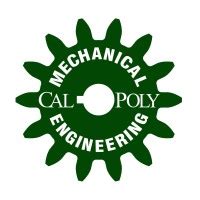Cal Poly’s College of Engineering is renowned for its exceptional Mechanical Engineering program, which consistently ranks among the top in the nation. With a deep-seated commitment to experiential learning, cutting-edge research, and industry collaboration, Cal Poly empowers its students to become highly sought-after professionals in the field.

Unparalleled Experiential Learning
At Cal Poly, mechanical engineering students engage in unparalleled hands-on experiences that prepare them for the challenges of the real world. The university’s Learn by Doing philosophy extends to every aspect of the curriculum, including:
- Project-based learning: Students collaborate on real-world engineering projects, working with clients and solving complex technical problems.
- State-of-the-art laboratories: Cal Poly boasts world-class laboratories equipped with the latest technology, providing students with access to industry-standard equipment.
- Co-op program: Students can gain valuable industry experience through internships with renowned companies in various sectors.
Cutting-Edge Research and Innovation
Cal Poly’s Mechanical Engineering faculty are actively engaged in cutting-edge research that addresses critical societal challenges. Their work focuses on areas such as:
- Alternative energy systems: Researchers are exploring innovative technologies for renewable energy generation, including solar, wind, and geothermal systems.
- Advanced materials: Engineers are developing lightweight, high-strength materials for use in automotive, aerospace, and other industries.
- Robotics and artificial intelligence: Faculty are pushing the boundaries of robotics and AI, creating automated systems for manufacturing, healthcare, and other sectors.
Industry Collaboration and Career Outcomes
The Cal Poly Mechanical Engineering program enjoys strong industry ties, ensuring that students gain the skills and knowledge needed to succeed in the workforce. Through partnerships with companies like Boeing, Lockheed Martin, and Tesla, Cal Poly students have access to:
- Industry-sponsored projects: Companies provide funding for research and development projects that give students real-world experience.
- Guest speakers: Industry professionals share insights and best practices with students, exposing them to cutting-edge technologies and career opportunities.
- Career fairs: Cal Poly hosts numerous career fairs where students can connect with potential employers.
Tips and Tricks for Success in Cal Poly Mechanical Engineering
- Seek out mentors: Build relationships with faculty, staff, and upperclassmen who can provide guidance and support.
- Join engineering clubs: Clubs offer opportunities to participate in competitions, network with peers, and develop leadership skills.
- Take advantage of resources: Utilize the university’s tutoring centers, counseling services, and career services to enhance your academic and professional development.
- Manage your time wisely: Mechanical engineering is a demanding program, but don’t sacrifice your well-being. Create a realistic study schedule and prioritize your tasks.
Common Mistakes to Avoid
- Underestimating the workload: Mechanical engineering is a challenging field that requires significant time and effort. Avoid procrastination and stay on top of your assignments.
- Neglecting teamwork: Engineering is often collaborative, so be willing to work effectively in groups.
- Overlooking the importance of communication: Develop strong communication skills to effectively convey technical information and collaborate with others.
Pros and Cons of Cal Poly Mechanical Engineering
Pros:
- Hands-on learning: Unparalleled experiential learning opportunities prepare students for real-world challenges.
- Faculty expertise: Renowned faculty engage in cutting-edge research and industry partnerships.
- Industry collaboration: Strong ties with companies provide students with valuable industry experience and career opportunities.
Cons:
- Workload: Mechanical engineering is a demanding program that requires a significant commitment of time and effort.
- Large classes: Some classes may have a large number of students, which can make it difficult to receive individualized attention.
- Competition: The program can be competitive, so students need to maintain a strong academic record and be prepared to work hard.
Data and Statistics
- According to the U.S. Bureau of Labor Statistics (BLS), the median annual wage for mechanical engineers was $90,680 in May 2021.
- The BLS projects a 7% growth in employment for mechanical engineers over the decade 2021-2031.
- Cal Poly’s Mechanical Engineering program has an 87% placement rate within six months of graduation.
- The average starting salary for Cal Poly Mechanical Engineering graduates is $75,000.
Conclusion
Cal Poly’s Mechanical Engineering program provides an exceptional education that prepares students for success in a wide range of industries. Through its unparalleled experiential learning, cutting-edge research, and industry collaboration, Cal Poly empowers its graduates to become leaders in the field and make a meaningful impact on the world.
